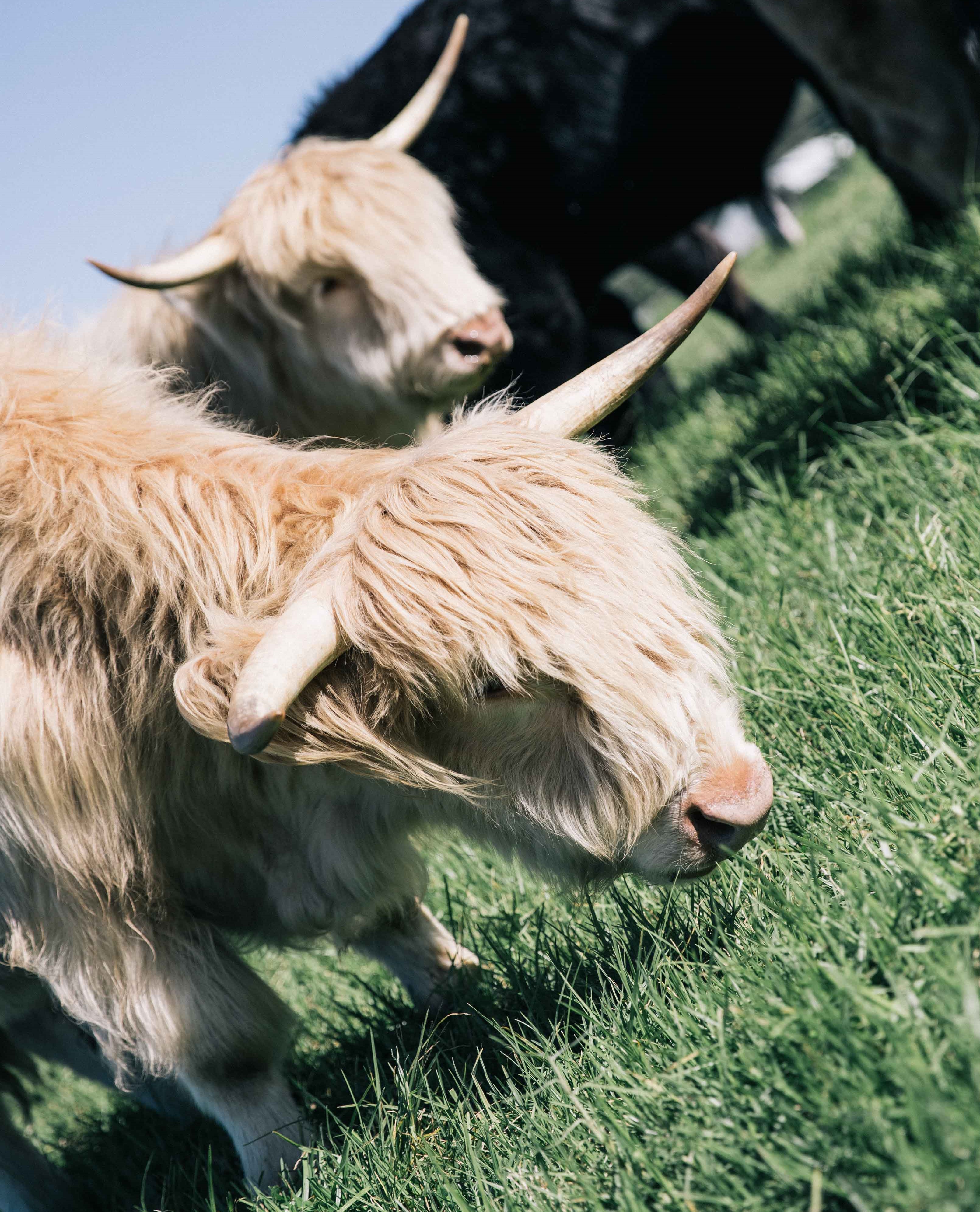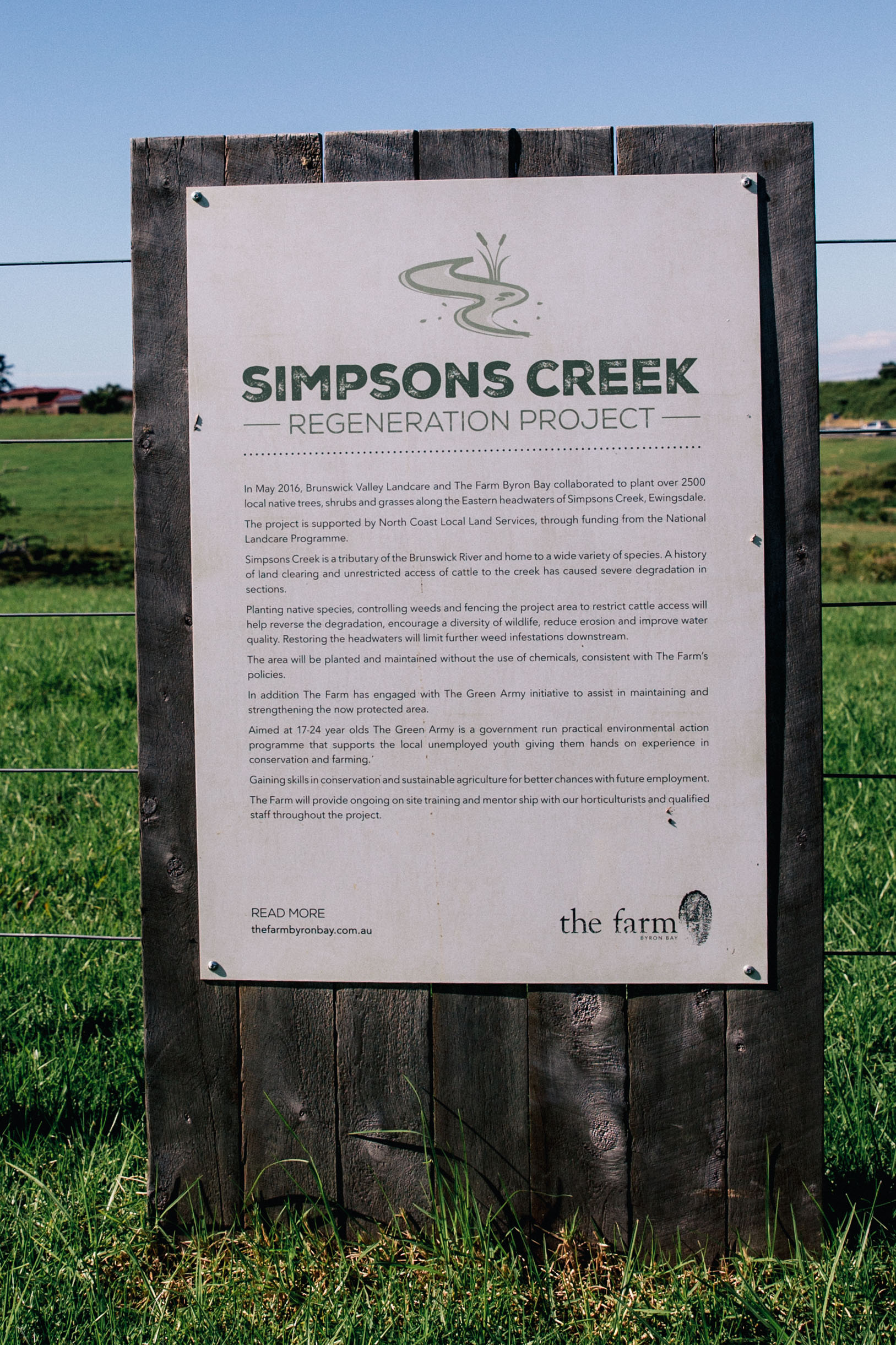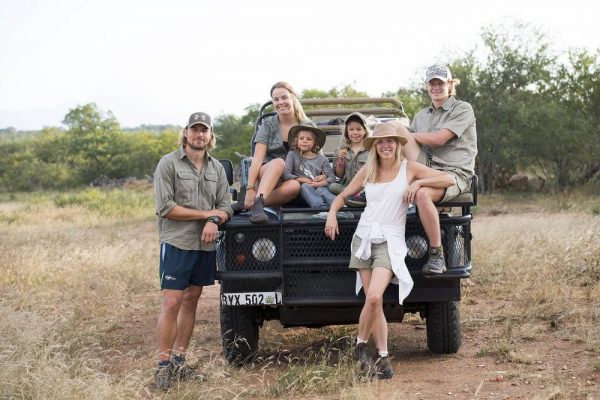Is A Vegan Diet The Only Sustainable Or Ethical Food Choice?
To Meat Or Not To Meat? That Is Actually The Wrong Question
Kira Simpson
A couple decades ago, you probably never would have thought a topic like whether to eat meat or not would become so contentious. Once upon a time, it was simply a matter of survival.
Many of us are now in a very fortunate position where food is literally delivered to our doorstep from all over the world. We have access to such an astonishing variety of food, nature no longer dictates our diet. We do.
But let’s not ignore the marvels of what outsourcing and industrialising food production has enabled us to do.
We’ve been able to invent the locomotive, develop life-saving medicine, earn an annual salary sitting at a computer all day, travel the world and enjoy life in ways our ancestors wouldn’t have dreamed of. We even have the time and mental energy to explore the ethical and moral arguments behind whether we should be eating meat.
The challenge is, a growing chasm is forming between the consumer and the farmer. Most consumers don’t really know where their food is coming from and at what cost.
Whether it’s your frozen ‘fish’ fingers, imported oranges, Bolivian quinoa, mono-crop soy tofu, factory farmed beef patties, 5% ‘almond’ milk or Peruvian chia seeds – it’s being shipped to us from all over the country and all over the world, creating all sorts of environmental, health and social dilemmas.
A diet void of meat does not give you a free ride to ethical food heaven. The question should be more about, how can we do better? Irrespective if you choose to eat meat or not.

I do believe if more people knew what went into raising an animal, and its slaughtering and processing, a lot less meat would be eaten. On this same token, I’m also certain if more people knew what went into growing their plant crops, a lot less food would be eaten in general.
If you were responsible for your own self-sufficiency, the world would look a whole lot different. Thank God we aren’t. Most of us would starve to death
Let’s Get Philosophical
The fact we have a higher consciousness to deliberate these questions about ethics and morality, raises our intellect above animals. This is what sets us apart and yet, biologically speaking, we are not apart from them. You can see how this is a delicate line to cross.
Do you think a bee thinks much about its ability to pollinate other plants? The worker bee’s sole intention is to bring back food for its colony. It doesn’t have the ability to comprehend the ripple effects its action are having in sustaining the life of its colony beyond that moment. But that’s exactly what its actions are doing. Pollinating plants for future growth and in doing so, contributing to the survival of its hive in the future.
But as humans, we have the ability to comprehend such matters. To make intentional choices about how we choose to exist in this world. We can choose to eat food as we wish and, biologically speaking, we can eat a wide range of food. We’ve evolved to do so in a world where no food source is certain because climate varies, seasons change, and weather patterns can quickly put a halt to our plans to sow and harvest. On this premise, many would argue, we have the choice to simply not eat meat. That’s all well and good. But we also have the choice to then eat meat.
The Cloudy Problem
I see the good that has come from people challenging the merits of animal agriculture, drawing particular attention to the factory farming model. They’ve helped to raise awareness about animal cruelty in an industry that has proliferated behind closed doors and never been held to account for its environmental degradation. We’ve even been encouraged to reduce our consumption of meat, because let’s face it, we really don’t need to eat meat at every meal. Protein and nutrients come in many different forms.
There are, however, many well-intentioned folk who are throwing every form of animal agriculture into the one basket.
Unfortunately, this muddles the picture and ultimately leads to the wrong fight being fought. By viewing all forms of animal agriculture as evil, immoral and unethical, is to say that animals have no role in sustaining natural ecosystems, and humans have no role in managing those systems. So basically, are we to passively sit back and let nature take its course? If this were the case, we would cease to exist as a species. This part doesn’t even need to be about eating the meat. For what this argument fails to acknowledge is one key point. The positive impact these well managed, animal-based agricultural systems have in rebuilding biodiversity, soil and a more resilient food system for us. From here, the people in charge managing these systems deserve to be equitably compensated for doing one of the most important jobs on the planet.
From this point, I want to make it clear.
I do not believe animals were put on this earth to be locked up in sheds, fed unnatural diets of grain and soy, pumped with antibiotics because their environment does not support a healthy way of living, and then sent to a slaughter house to feed into a food system based around efficiency, convenience and highly processed foods. One where cheaper is considered better and quality is disregarded. One where the animal has no face and is served between two slabs of highly refined wheat bread devoid of any meaningful nutrition and a plastic slice of cheese (you may even get a soggy shred of a green coloured vegetable that resembles baby snot). And this is considered to be the life force that is our food which we rely on to uphold our whole species. I think not.

The Food Web
Even a decentralised and localised food system can replay the same problems seen in the conventional model unless there’s a more regenerative intention at the heart of the matter.
Take for example the cow. It has an amazing ability to turn cellulose (grass), an unusable form of energy for human nutrition, into a nutrient-dense food (their meat which we eat). Through this process, it lays down nitrogen in the form of its manure, to feed back into the soil. These grasses pull carbon dioxide out of the atmosphere through photosynthesis. Plants need CO2 to grow! There is nothing inherently wrong with this natural system that simply recycles the energy that already exists.
Cows allowed to graze as nature intended, makes for a healthier animal. The structure of their whole being changes. Omega 3 rich grasses are converted into omega 3 rich meat. A healthier animals means a healthier environment and a healthier end product for you. You can choose to support this kind of regenerative agriculture.
Through this process, other intricate life forces are permitted to thrive. Think about the worms and microbes that live below the soil surface. The bugs and insects that live in the grass and feed off the manure and the birds that feed on these. It’s all interconnected.
These are animal-based systems that sustain the lives of whole families, whole communities, whole nations and whole ecosystems. To ignore the case for encouraging farmers to pursue better ways of managing these systems in such a way to return life to our soil rather than scrapping them altogether, is to throw the baby out with the bath water. We’re talking about an incredible opportunity here to nurture and replenish biodiversity.


So What’s The Big Deal?
The problem is the kind of backward system we’ve created. One where energy and resources are being poured into upholding farming methods dependent on exorbitant amounts of petrochemicals, and feeding into a food system based around highly processed and packaged foods that are unsustainable for our own health, and the environment.
We’re feeding animals grain and soy crops they were never intended to eat. Cows have four stomachs to digest grass. A diet of grain is extremely acidic to their body and creates an environment for inflammation and disease. Chickens are being fed soy-based feeds that are extremely estrogenic in nature because it’s cheap to produce and readily available. Most soy seed, unless specifically organically grown, is also genetically modified. Not to mention chickens are omnivores and thrive on a bug and insect rich diet found outside and not in huge factory sheds.
I’ve had some great teachers who have taught me, “our dependence on yesterday’s energy, in the form of fossil fuels, is doing nothing to regenerate the energy for tomorrow.”
A food system based on annual crops creates an addictive energy cycle. Soil that has been repetitively and intensively tilled, requires minerals and nutrients to replenish its stores. Do we create these inputs through synthetic fertilisers using more fossil fuels from yesterday? The kind that is finite. Or do we try and employ more regenerative practices leveraging one of nature’s greatest gifts – animals?
Ask any gardener and they’ll tell you their garden doesn’t just happen. It’s not without its fair share of inputs; time, energy, resources and backbreaking labour. Even if you forgo synthetic fertiliser, animals still play a key role in producing plant-based compost (thank you worms & microbes) or manure composts (thank you chickens and cows). There are certain farming methods that are very well in tune to all this, such as Biodynamics and Holistic Management.

Our existence falls back to our reliance on both plants and animals. If you choose to impose human words like ‘exploitation’, ‘slavery’ and ‘murder’ to a food web we cannot separate ourselves from, you’re ignoring the beautiful synergy of what it means to work with nature as part of her ecosystem. One where death is very much at the core of its sustenance.
The Care Factor
What becomes of all humans is the same. Death. Whether you eat meat or not. What becomes of all animals is the same. Whether they eat grass, eat each other, or eat us. Welcome to the circle of life. But even this view on things negates everything that happens in between. The part were we live. Yeah, let’s not forget that. And the quality of that life.
As someone who has made it her mission in life to drive herself crazy pondering these deeper questions about human existence and how we can improve the quality of that life, and exposing myself to criticism as I explore these topics more vocally to engage others in the conversation, some days I do have to ask. Why bother?
But I bother because I care. Beneath it all, I just care. I just want to live better. I want to live in connection with other human beings and nature. I want to care about the food I eat because I care about my health and the world around me. And because it feels good. My life is all the more richer because of it.
And to this, I wish I could just end it here because fundamentally, I believe we’re not that different. We all want to be better off. We all want to live long, happy and fulfilling lives.
Then our egos get in the way. Because we also want to be right. More to the point, we want to feel like we’re doing the right thing.
The world is complex and humans are not apart from this complexity. We, alongside nature, are continually evolving and transitioning. Our minds, our bodies, our entire world.
The moment we start making blanket statements that there's only one way to live or one way to eat, we eliminate diversity within our own species, ignore the need for different diets to exist based on geographical and ecological limits, and remain closed off to the possibility that your needs and preferences may change based on any number of factors (health circumstances included).
How Do You Fit In?
Which is why we need to be asking more questions like – how can we work towards building a more resilient local food system that supports and encourages farmers to steward the land in a regenerative and earth-centric manner (and equitably financially compensates them, just like everyone else who holds a job)? Not one that demands a crucifixion of nature for the sake of greed and entitlement, where we pillage her from bone to dust. This is as much about your own health as it is about this planet’s.
In our luxurious lifestyles where everyone is fighting for our dollar, it’s all to easy to become complacent. Get curious but be understanding. We’re all in this together. Use your online detective skills. Educate yourself. Rock up at farmer’s markets and ask some questions about farming methods. Certainly, as farmers, we need to become clearer with our own marketing messages. But as a consumer, embrace the challenge.
There’s a halfway point here where we can meat (see what I did there).
Photo by Alexandra Andersson on Unsplash


